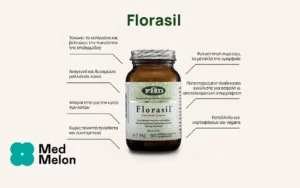Scientific Names of Flaxseed Oil:
Linum usitatissimumL. [Fam. Linaceae]
Forms:
Certified organic oil, expeller-pressed in the absence of light, heat and oxygen.
Traditional Usage:
– Allergies
– Anti-inflammatory
– Antioxidant (indirect)
– Autoimmune Diseases
– Bone Health
– Brain Disorders
– Breathing Disorders
– Cellular Regeneration
– Chronic Fatigue Syndrome
– Cleansing
– Detoxifying
– Eczema
– EFA Deficiency
– Endometriosis
– Eyesight Disorders
– Fatigue
– Fibrocystic Breast Disease
– Fibroids
– Fibromyalgia
– Gout
– Hemorrhoids
– Hepatitis
– Hormone Imbalances
– Joint Pain
– Lyme’s Disease
– Menopausal Problems
– Muscle Cramps/Pain
– Nervous Disorders
– Osteoporosis
– PMS
– Reducing LDL Cholesterol
– Reproductive Organ Health
– Retinal Disorders
– Senility/Aging Problems
– Skin Disorders
– Sleep Disorders
– Tendonitis
– Vascular Disorders
Overview:
Flaxseed Oil products consist of the oil of dried, ripe seed of Linum usitatissimum L. [Fam. Linaceae]. The various cultivars of L. usitatissimum (L.) Vav. et Ell, including brown and golden flax varieties, are equally acceptable as medicines. Flaxseed oil contains approximately 57% alpha linolenic acid (ALA) or omega-3 fatty acid, and 15% linoleic acid (LA) or omega-6 essential fatty acid, and as a source of these essential fatty acids, can be used to boost energy and reduce fatigue. Flaxseed oil can be used to prevent and treat EFA deficiencies in the diet, such as those related to brain and retinal disorders, especially in infants, vascular disorders and hormonal imbalances. Every cell of the body has a phospholipid membrane and that lipid is made up of essential fatty acids: 60% EFA’s for most cells and 80% EFA’s for brain and nerve cells. The human retina is fully 60% omega-3’s. Omega-3 EFAs are important for membrane fluidity of all cells of the body; they also protect the body against abnormal blood clotting and are anti-inflammatory. Studies have shown that increased levels of omega-3s in the diet increases the flexibility of red blood cells for passing through capillaries and blood vessels within only three days and reduces and/or normalizes blood platelet stickiness.
It is important to have the right balance of omega-6 and omega-3 EFAs in the diet for optimal health. Having a serious deficiency or excess of either of these fatty acids can cause disease – especially having too much omega-6 without adequate omega-3. Studies show that flaxseed oil, when given to animals exposed to toxic chemicals, prevented the formation of any abnormal growths; fish oil and evening primrose oil followed close behind and corn and safflower oils (which contain only omega-6 EFA’s without any omega-3’s) were seen to stimulate the formation of abnormal growths.
Active Ingredients:
The oil contains: Essential fatty acids with approximately 57% alpha linolenic acid (ALA) or omega-3 fatty acid, and 15% linoleic acid (LA) or omega-6 essential fatty acid. Nutrition information per 10 ml (2 tsp): Energy 88 Cal/366 kJ; protein 0g; fat 10g;
polyunsaturates 7.4g; linoleic acid (w6) 1.8g; monounsaturates 1.6g; saturates 0.8g;
Cholesterol 0g; Carbohydrates 0g.
Suggested Amount:
For essential fatty acid supplementation: 1 – 3 tablespoons of flaxseed oil taken daily with food. Flaxseed oil can be used as a component of salad dressings, or it can be incorporated into other foods such as non-hydrogenated margarines or butters, or it can be mixed in with fruit smoothies or other shaken drinks. Flaxseed oil should never be used for frying foods, but may be used safely in baked foods (Bibus et al. 1998).
Drug Interactions:
None known.
Contraindications:
None Known.
Side Effects:
Taken as directed, flaxseed oil does not have any negative side effects. However, excessive flaxseed oil and/or omega-3 EFAs in the diet, in the absence of adequate levels of omega-6 EFAs, can weaken blood vessels and capillaries and increase the tendency and frequency of nose bleeds and/or other bleeding problems. This increased risk of bleeding with excessive flaxseed oil and/or omega-3 EFAs in the diet can be avoided simply by using EFA balanced flaxseed oil blends containing sunflower and other oils.
References:
Belch et al. 1988: Effects of altering dietary essential fatty acids on requirements for non-steroidal anti-inflammatory drugs in patients with rhematoid arthritis: a double blind placebo controlled study. Ann Rheum Dis 47(2): 96-104.
Carper, J. 1993. Food Your Miracle Medicine: How Food Can Prevent and Cure Over 100 Symptoms and Problems. Based on more than 10,000 scientific studies. Published by HarperCollins Publ., Inc., 10 East 53rd Street, NY.
Erasmus, U. 1993: Fats that Heal, Fats that Kill. Published by Alive Books, Burnaby, B.C., Canada. Pp. 1-456.
Siguel 1996. Diagnosis of Essential Fatty Acid (EFA) Deficiency: Using Flax to Prevent Heart Disease. Proc. 56th Flax Institute of the USA, J.F.
Carter, ed. North Dakota State Univ., Fargo, ND pp123-133.
Stordy, J. 1995: Benefits of docosahexaenoic acid supplementation to dark adaptation in dyslexics. Lancet 346: 8971, 385.




